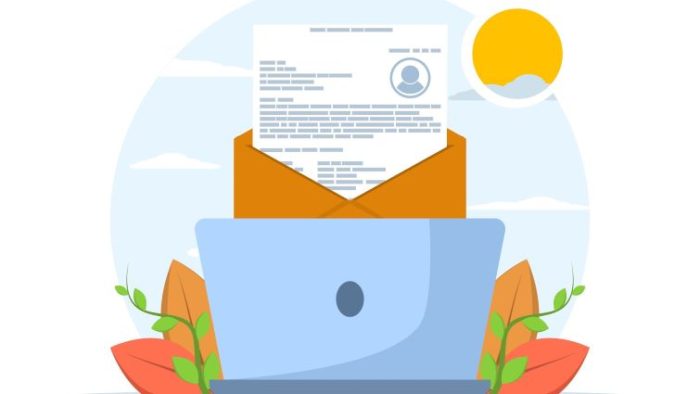How to Create a Compelling One Page Resume
 Publié le 24 May 2024
Publié le 24 May 2024
Make a strong first impression right away by knowing how to create a compelling one page resume.
We won’t sugarcoat the struggles in the job market here!
Candidates don’t get hired just because of their incredible career path, talent, or expertise. Those may definitely be prerequisites, but there’s a lot more that goes into standing out to recruiters and hiring managers. Have you experienced this yourself? Don’t worry, we’ve all been there.
Your one-stop solution? A compelling one-page resume in an age where attention spans are shorter than ever, of course!
By the end of this post, you’ll know exactly how to create a killer one-page resume, why it’s important, and best of all? You’ll get two real-life resume templates—yes, two!
So, grab your drink of choice (hot chocolate, anyone?) and let’s dive in!
Should resumes ideally conform to a one page length?
The short answer is yes, your resume should be one page long, regardless of how extensive your work experience is. Why a single page, you ask? Well, here’s a quick explanation:
One page resumes will not only make it easy for candidates to reach out to recruiters and hiring managers who want to quickly grasp your profile and qualifications but also highlight your key selling points without any unnecessary details.
But in case your long career experience is the main deciding factor for the position you’re pursuing, only then you can stretch it to a two page resume.
So what’s the recommended length for a resume: one or two pages?
If we tell you that your resume should always be a single page, then you should take what we say with a pinch of salt because in the corporate world, one size doesn’t fit all, and there are plenty of parameters you should consider.
We’ve put together a breakdown of some of the most common factors that can determine the ideal resume length to help you decide whether you should opt for a one-page or two-page resume.
Years of experience
If your professional experience is shorter than a decade, or you’re just starting out in your career, it’s a no-brainer: stick to one page for your resume. Because as we highlighted earlier in this post, hiring managers have a lot on their plate besides scrutinizing resumes all day long.
On the other hand, if your experience exceeds 10 years and you’ve had different roles throughout your career path, then you may ideally create a two-page resume to better highlight your accomplishments and expertise.
Industry standards
Again, there is no default norm for resume pages. Some industries such as research or sales (especially for managerial positions) may require in-depth information and data, such as proven records, research projects, or patents.
On the flip side, in common industries like marketing, design, or human resources — a one-page resume will do in many situations, because they typically prioritize a concise and eye-catching one. And if hiring managers want to see more, they’ll likely ask for a portfolio rather than flipping through a long, detailed resume.
Job description
Create your resume in line with the job description, as this eliminates headaches related to how many pages you should need. So if you believe that the required information exceeds one page, don’t try to reinvent the wheel —just go for two pages.
Personalize your resume and make sure your skills and experiences match the specific job requirements, because after all, what recruiters are really looking for? A profile that ticks all the boxes, right?
Tips to boil your resume down to one page
Now that you know how important it is to have a single page resume, let’s move on to the more complicated parts. How to create a compelling one page resume that doesn’t leave anything out . Well, what are we here for?
- Start by selecting a resume layout that’s neat, well-organized, and easily readable. A double-column layout is often an excellent choice.
- Make sure to use bullet points and graphs to condense information and save up some paragraphs. You can do that with the education and skills sections.
- Opt for a small font size — but not too small — to maintain readability for the reader, and adjust margins and line spacing to maximize space on the page.
- Trim out any outdated or irrelevant work experiences, certifications, or courses that are consuming too much space.
- Highlight your most recent and pertinent work experiences, focusing on accomplishments and milestones rather than simply listing the duties.
- Tailor your resume to the specific position you’re applying for, emphasizing relevant skills and experiences that align with the job requirements, to ensure your resume passes through applicant tracking systems (ATS).
Remember, each job requires a customized resume, and there is no such thing as a one-and-done resume for every position.
How to Create a Compelling One Page Resume?
Okay, we agree now that a one page resume is more likely to pass the ATS systems and leave a fantastic first impression on the hiring manager. That’s great. But you’re not done yet. You now need to create a compelling single page resume.
The following steps aren’t just guidelines. They’re the game plan for landing your dream job.
List your contact details
We hate to state the obvious, but we’ll do it this time! 😜 It’s indispensable to list your personal details like your name, email address, phone number, and the city you live in. However, on some occasions, it’s better not to get too specific about your location as this can deter potential employers from moving forward with your application due to relocation arrangements. If you are applying for remote job roles, it’s ok to leave off your location unless specifically required by the job poster.
Highlight your objective statement
Do you know what every recruiter wants to see? Your objective statement, and it’s not really hard to understand why! This section is your best chance to set yourself apart from the rest of the candidates and convince recruiters that you’re the best fit for the position they’re offering.
Just remember to keep it concise and include it in a visible area of your one page resume.
Mention your educational background
Don’t buy into the idea that college degrees are outdated. Having a solid education background is still a valuable asset and a common requirement for companies across all industries: marketing, production, IT, sales… you name it.
So be sure to mention the school you attended in your resume, the degree or certifications you achieved, and the courses you completed, and don’t forget to highlight the duration of each one.
List your relevant work experience
List your most recent and relevant work experiences. It goes without saying that you should prioritize the work experiences that align the most with the position you’re applying for. In a brief paragraph, mention the company you worked for, the position, the duration, and your specific tasks.
Include your skills
Saved the best for last! List your skills that you believe match the job requirements. For instance, if you’re aiming for a digital marketing role, you better highlight skills related to social media tools, SEO, content creation and everything in between.
A great idea would be to use a single word for each skill. Not only does this save you space (a much better option than using a bullet point for each skill), but it also increases your ATS score.
Proofread and Edit
If you think that you’re done, take the time to review your one page resume! Before submitting your resume, don’t forget to proofread it to check for any unnoticed typos. The best way to do this? Just upload your resume to any typing assistant apps — they’re everywhere. You’ll get instant feedback about any grammatical errors and can correct them with a few simple clicks.
Inspiring Examples of one-page resumes
One page Product Designer (Mid-Level Career) Resume
Ricardo’s resume highlights his six years of relevant experience for the job position he’s applying for as a product designer. He emphasized his milestones in optimizing the UX and UI of his company, as well as his development of chatbots, prototypes, and designs.
Ricardo also showcases skills that match the job requirements and are in line with his product design, such as project management and PR, along with his language proficiency to streamline communication in the workplace and references to legitimize his career path.
One Page Marketing Manager (Seasoned professional) Resume
Oliver’s resume condenses over a decade of experience into a single page, fitting remarkably well. It covers his most relevant milestones, such as advising tech agencies, and raising funds for fast growing startups.
Oliver also highlights in his resume his achievements throughout his journey with the companies he worked for, such as his management of marketing budget, and his development of marketing strategies including social media advertising, website popups and email marketing to demonstrate his well-roundedness to the recruiters and hiring managers.
Oliver didn’t stop there, he also shared his outstanding publications (the two books he authored), the leadership skills he gathered throughout the years, the objective statements that summarizes his corporate journey and essentially all the highlights that marked his long career.
Over to you
There you have it! And that’s it from us, phew. We hope you had as much fun reading this article as we did writing it!
Depending upon your industry, a one page resume can be the right fit for your application. And it’s not as tough as you think. Now that you know how to create a compelling one page resume, you can boost your chance of getting hired for your dream job.
Thank you for sticking around till the end! Wishing you the best of luck in your job search, several job offers and a secure, well-paying job!







